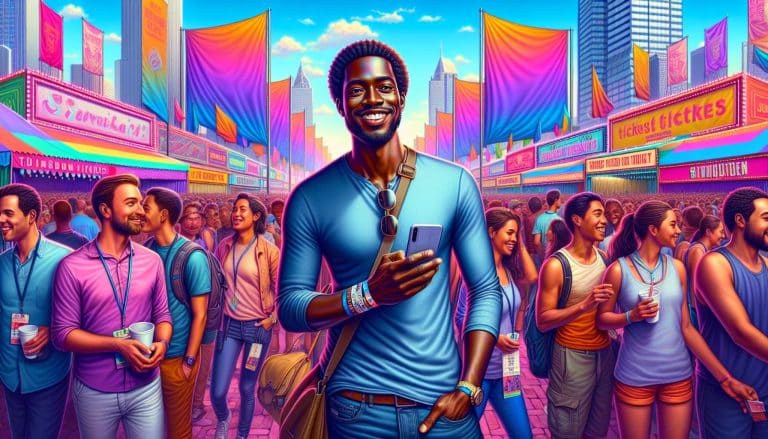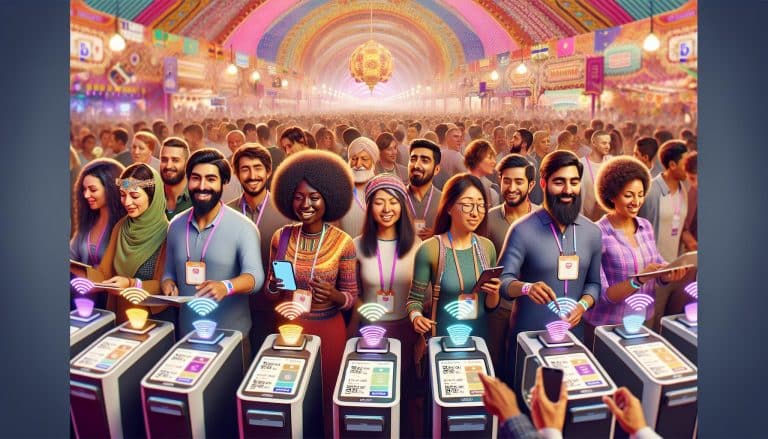AR and VR are taking on the event industry by storm. As event organizers, you know that your audiences are seeking a more immersive and personalized experience and AR and VR are not just a fleeting trend–they’re here to stay for good.
With the global spread of advanced interactive technology, your audiences expect you to deliver immersive experiences and blow them away with how unique those events are. Research shows that 78% of Americans know what VR is and 22% of VR users want more immersive and interactive content. The good news is that event organizers have begun to use AR and VR as staple event technology for their own events.
Now more than ever technology is transforming the attendee experience and impacting the way events are organized and run. Event planners now ask themselves whether specific event technology could elevate their events and contribute to an overall better experience for their attendees.
With AR and VR technology, you can now fulfill your audience’s wishes by bringing them user-oriented experiences that impress and enlighten. When your attendees choose to attend your event, they are banking on seeing and experiencing something remarkable that will instill envy in their friends and followers (because they WILL post about their experience on social media) that did not attend. AR and VR will empower and enable you to deliver that interactive and immersive experience that your audiences are searching for.
Now, we will look at a few critical things that you need to know about AR and VR before incorporating them into your events. Here is a quick preview of what is to come:
- The difference between AR and VR technology and when to use them.
- What you need to implement AR and VR technology in order to elevate your events.
- The many ways that AR and VR have already been used at events.
Understanding what is AR and VR
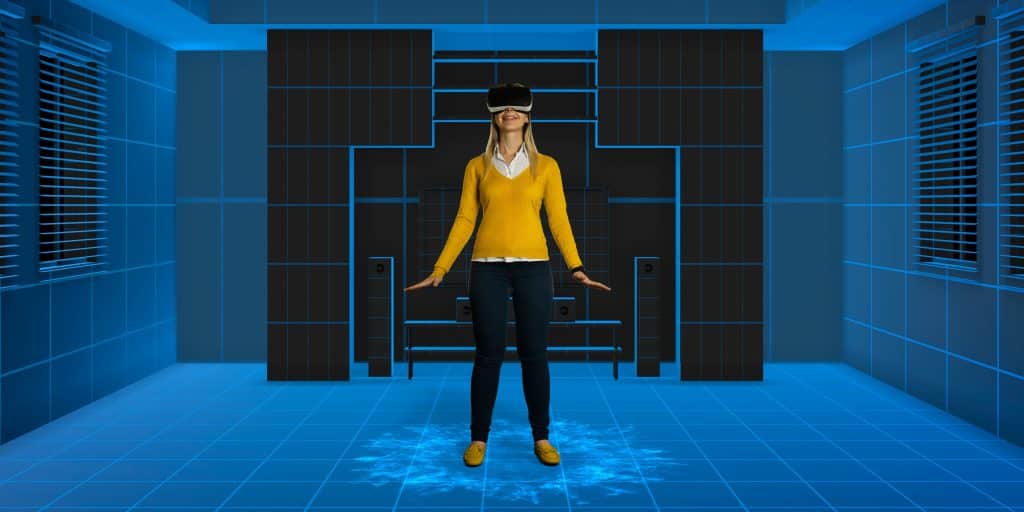
You want to maximize event experiences through the use of AR and VR technology, but first, you need to know what makes them individually unique. They are often confused, but knowing the differences is key to successfully implementing them for your own event–and the differences matter when you use them.
AR is the acronym for augmented reality and what it does is use advanced technology to enhance our perception of the physical world. AR plays with visual, auditory, and other sensory elements to allow users to interact with the already existing world in a meaningful and unique way. A key takeaway to know about AR is that it does not create or take users to an entirely different world or adventure. What it does is use technology to add to our physical world which allows users to experience reality in a completely unique and tailored way. Through AR, users get to interact and experience a reality that takes them on an adventure and tells a unique story.
VR stands for virtual reality and it is exactly what you imagine it to be. Like something out of a science fiction movie, VR stimulates an entirely new world in which users are completely immersed. Users are interacting with a digital environment that brings them on an adventure from wherever they may be located. In short, VR stimulates entirely new and unique situations, adventures, and worlds despite a user’s location.
What you need to get started
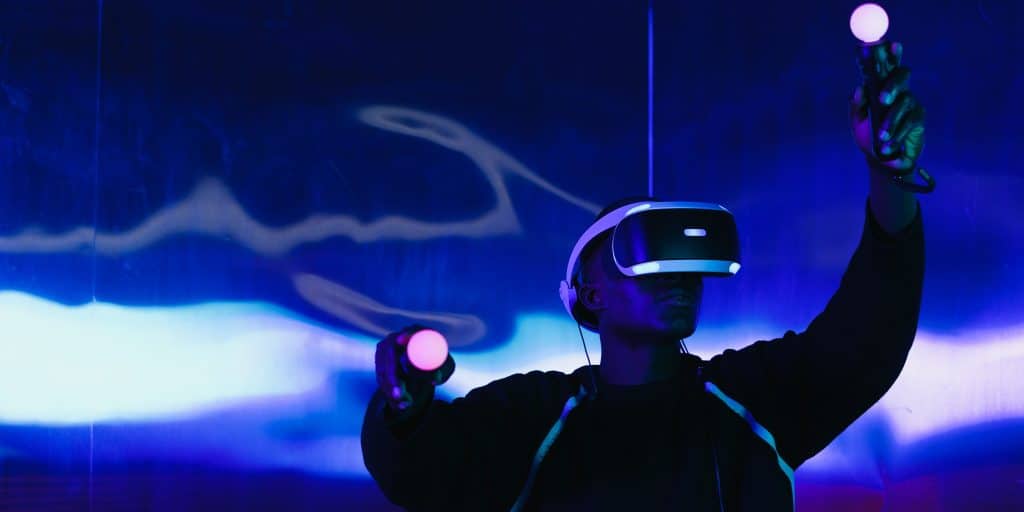
Now we’re cutting to the chase. One of the first things that you have to do is think about how AR and VR will impact and elevate your events. You have to specifically plan how AR and VR will play out at your event. Will you use it for gaming opportunities or just as a navigation feature for the event? Think about things carefully so you know what AR and VR will be used for at your events and get in turn a better sense of pricing.
The next part is to find a partner who can support and provide you with AR and VR at your events. These people should be experts and provide you not only with comprehensive technical support but also supply you with the information you need to utilize AR and VR at your events. Your partners should bring tech support and explicitly tell you which apps or onsite requirements are necessary at the venue space.
How you can use AR and VR to promote and elevate your events
Event organizers are using AR and VR technology to transform not only the attendee experience during the actual event itself but also marketing and promotion strategies as well. AR and VR bring an element of fascination and personalization that your audiences are searching for. When used, it will completely intensify audience engagement throughout all stages of event promotion and until after the event itself. These are some ways that AR and VR have been used to transform event promotion strategies and event experiences.
Creating marketing strategies that engage your audience
Promoters know and understand that a successful marketing campaign engages the consumer, and for event promotions, your audience will expect to hear about an event that is new, exciting, and personalized to their interests. With AR and VR technology, you can bring more of an interactive approach to your marketing strategies. Many marketers use AR and VR as a tool to provide a firsthand perspective of what it will be like to attend the event. They’re using technology to create a story to compel their audiences to visit their ticketing sites and tell their friends and relatives about this unique event that’s going to happen.
Gamifying event experiences

AR in particular has brought an interactive aspect to many events such as concerts, sporting events, and conferences. You can either set up AR spaces or booths (by providing AR and even VR headsets) that can be accessed by using a smartphone. Bringing in a gaming aspect to your events enlivens the atmosphere and allows your attendees to be engaged in the event as well as interact with other attendees. Attendee engagement will boost with gaming opportunities provided through AR and VR which will only leave a positive impact on your attendee’s experience.
Smooth navigation assistance made simpler
AR and VR technology lends the opportunity for attendees to use their own smartphones to guide them through the event venue. AR apps for example can help attendees navigate the event venue space. With the reach of their smartphone devices, attendees can easily access simple solutions and avoid confusion in an already crowded and hectic space.
Interacting with event spaces
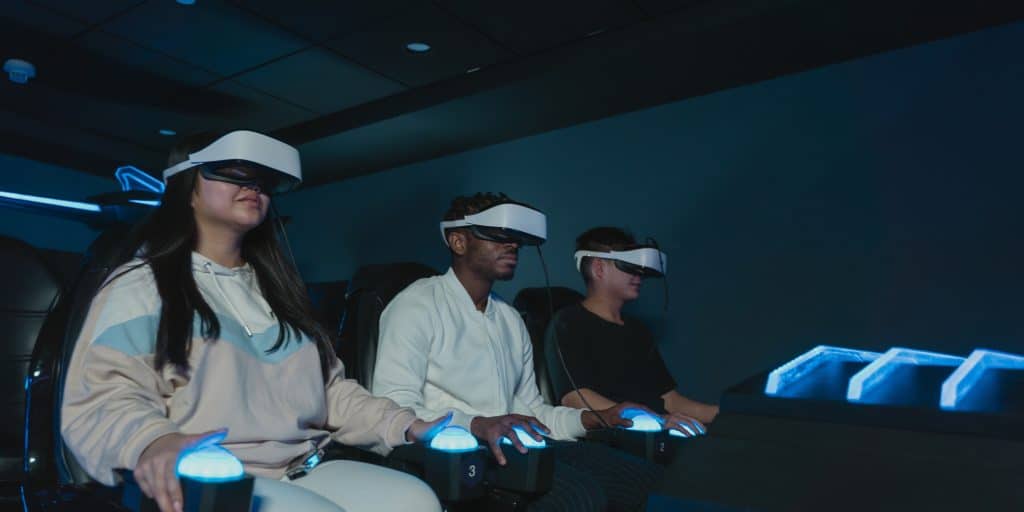
It’s fairly common, but event organizers have begun to use AR and VR as a way for attendees to consistently engage with the event space. There will be no boring moment! Attendees are able to access fun and unique virtual photo booths and gaming spaces, or even virtual portals to interactively follow a story unravel in real-time.
Virtual attendance from anywhere in the world
Since the onset of the pandemic, event organizers have looked to VR technology to bring live events to their attendees. From any location in the world, attendees can put on a VR headset and travel to the event venue space to attend in real-time. They are able to interact normally with other attendees and the venue space through VR. Eventgoers can actually get the live experience of attending the event live while staying remote.
Bringing events into the future
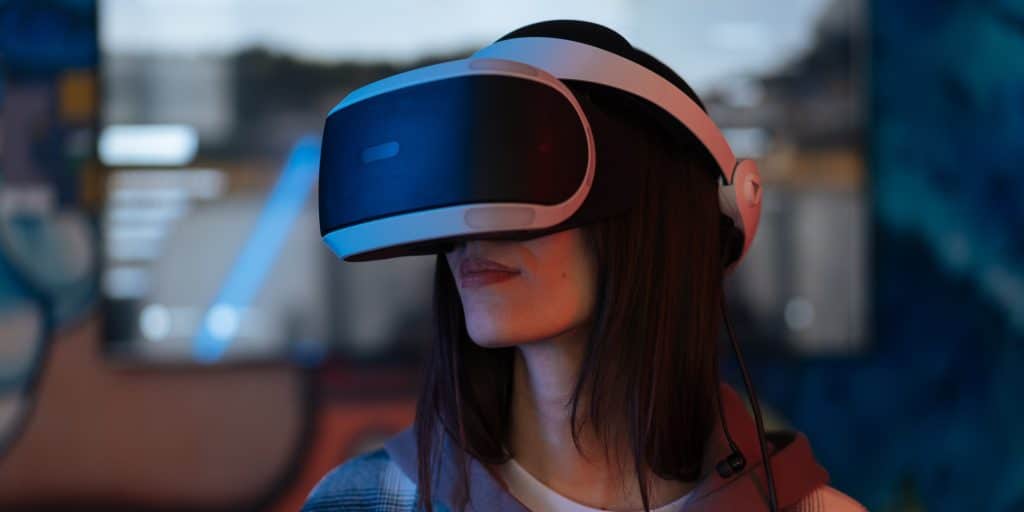
The event space is a place of great advancement with the potential to transform attendees’ experiences. Event technology is progressing rapidly and your attendees are catching on. AR and VR are just the tips of the iceberg of what you can deliver to them. Event organizers have to understand, plan, and deliver a unique and immersive experience that attendees expect. What they can find at your event should be something remarkably unique and interesting. Organizing interactive events through AR and BR technology will accomplish that for you and by adapting to change, your audiences can count on your events to inspire and transform them.
Ticket Fairy is a ticketing platform that will support your AR and VR events, so book a demo call with us to get started today!
You May Also Like:
How Metaverse Events Bring Mesmerizing Experiences To Your Audience
Boost Your DJ Career: Twitch Streaming Guide for Music Pros
2024 Music Festival Trends: Shifting Attendance Patterns Revealed

